
FBI Warns of CCP’s “Information Laundering” Tactics in U.S. Media

The Chinese Communist Party (CCP) employs sophisticated strategies to inject false information into U.S. discourse, ultimately making it mainstream, according to a recent report by the FBI. This practice, termed “information laundering,” involves spreading disinformation through various channels until it gains legitimacy.
An FBI spokesperson from the Los Angeles Field Office said that information laundering primarily occurs online, where false narratives are amplified across multiple platforms until they are picked up by credible news sources. “This is a generalized description of what we’ve seen at the FBI,” the spokesperson stated, The Epoch Times Reported.
The Mechanics of Information Laundering
Ronald Rychlak, a law professor at the University of Mississippi and an expert on Soviet disinformation, explained that this technique mirrors Cold War-era Soviet tactics. “A key component of disinformation is that it must appear to come from a legitimate source,” Rychlak said. “If it’s directly from the CCP or a Soviet newspaper, it lacks credibility. It has to be placed in a recognized news outlet by an accepted authority.”
Disinformation campaigns require a gradual buildup, he noted. “You can’t just approach major newspapers with a fabricated story. It needs to be seeded across smaller media outlets, industry newsletters, and local publications. Over time, as it gets repeated across different sources, it gains credibility,” he said.
The Soviets frequently used this approach, distributing false information through minor publications that larger media would later cite. “Once a narrative appears in multiple places, reputable journalists start to reference it, believing it to be legitimate,” Rychlak added.
CCP Influence on U.S. Media and Officials
Nicholas Eftimiades, a former CIA and Defense Intelligence Agency official, described information laundering as part of China’s “covert influence operations.” He highlighted that the CCP works to embed narratives in American media while also influencing elected officials. “This can be seen in their efforts to install pro-China policymakers,” he said.
A key feature of CCP influence operations, according to Eftimiades, is their subtlety. “They ensure their manipulation remains undetected. Compared to the West, their approach is highly sophisticated, calculated, and patient,” he said.
Eftimiades noted that when U.S. officials visit China, their experiences are carefully curated. “Every aspect of their visit is orchestrated—from meetings to social interactions—to shape their perspectives in favor of the CCP’s objectives,” he explained.
Targeting Dissenters and U.S.-Based Critics
The CCP’s disinformation strategy extends beyond policy influence to suppress dissidents abroad. The regime has targeted Chinese democracy activists, Tibetan and Uyghur advocates, underground Christians, and Falun Gong practitioners with misinformation campaigns and direct harassment.
Casey Fleming, CEO of BlackOps Partners and a counterintelligence expert, said that Falun Gong has been particularly resilient against CCP infiltration, prompting more aggressive tactics. “That’s why the CCP is using disinformation, lawsuits, and even threats of violence against them on U.S. soil,” Fleming stated.
Reports indicate that CCP-backed efforts have included bomb threats, social media harassment, and legal attacks against organizations such as Shen Yun Performing Arts, which promotes traditional Chinese culture independent of Communist influence.
Disinformation as a Tool of “Unrestricted Warfare”
Experts argue that the CCP’s tactics fall under its doctrine of “unrestricted warfare,” a strategy encompassing psychological, public opinion, and legal warfare. According to Fleming, disinformation is a key component of “cognitive warfare,” aimed at destabilizing the West. “While China has been expanding its military, its primary goal is to win without engaging in conventional conflict,” he said.
A 2024 House Committee report revealed that the CCP also employs “legal warfare” to silence critics. For instance, in July 2024, two Chinese Americans, John Chen and Lin Feng, pleaded guilty to acting as Beijing’s agents after attempting to bribe an IRS agent into launching a false investigation against Shen Yun.
Escalating U.S. Response
With growing awareness of CCP influence tactics, U.S. authorities are taking a stronger stance. “The U.S. is just waking up,” Eftimiades said, calling for a government-wide strategy to counter CCP operations.
Rychlak emphasized that combating disinformation requires a shift in perception. “We often think intelligence operations are about stealing secrets, but the real threat is the implantation of false information,” he said.
Eftimiades warned that U.S. politicians, academics, and business leaders need better education on CCP influence. “Chinese front groups often masquerade as cultural or business associations. Many U.S. officials unknowingly engage with these entities, unaware of their ties to Beijing,” he said.
Without a coordinated response, experts caution that China’s long-term strategy could erode American institutions from within. “We need stronger intelligence oversight and greater public awareness to counter these tactics effectively,” Fleming concluded.
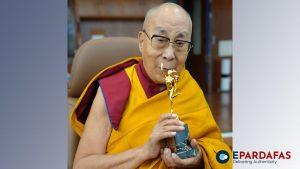
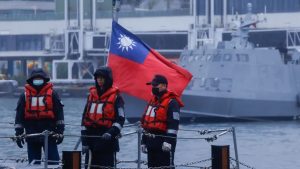
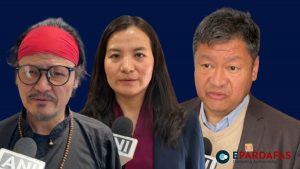
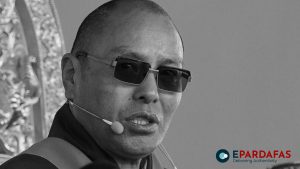
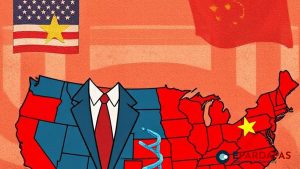






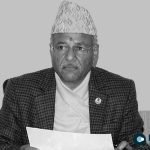
Comments